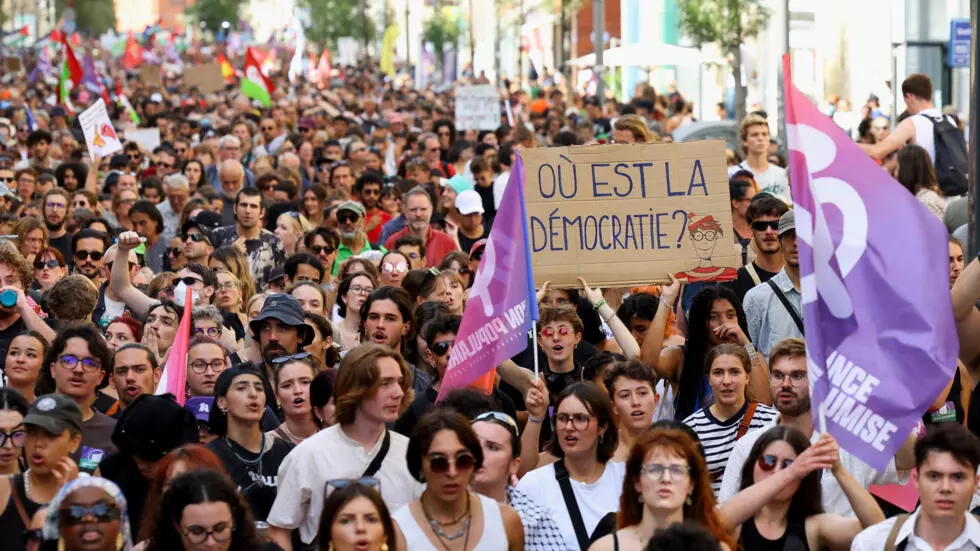Tens of thousands of demonstrators took to the streets across France on Saturday in protest against President Emmanuel Macron’s recent appointment of Michel Barnier as the country’s new prime minister.
The rallies, organized in response to Macron’s rejection of left-wing candidates for the position, drew approximately 110,000 participants nationwide, according to figures from the Interior Ministry.
The protests were most intense in Paris, where an estimated 26,000 people gathered. Demonstrators expressed their discontent with Macron’s decision, with many accusing the president of undermining democratic processes.
“They’ve said things like they feel their vote has been stolen,” reported Yinka Oyetade, a correspondent for France 24. Protester Manon Bonijol, 21, voiced her frustration, stating, “Using your vote will be useless as long as Macron is in power.”
Macron’s appointment of Barnier, the European Union’s former Brexit negotiator and a member of the conservative Republicans (LR) party, has sparked outrage among France’s left-wing factions.
The president argued that the left’s candidates for premier, including Lucie Castets, would not survive a no-confidence vote in France’s deeply divided parliament. Instead, Macron has opted to rely on right-wing and centrist support to navigate the political crisis.
The protests were called by youth organizations and were backed by most of the left-wing parties that comprise the New Popular Front (NFP) alliance, which emerged victorious in the snap parliamentary elections held earlier this summer.
However, the centre-left Socialist Party notably declined to endorse the street demonstrations, choosing instead to oppose Barnier in parliament.
In Paris, protesters chanted slogans denouncing Macron’s government, with some carrying signs addressed to the president reading, “Hey, Manu, we voted!” Alexandra Germain, a 44-year-old demonstrator, expressed her disillusionment, saying, “A dictatorship is being put in place.
They haven’t been listening to us in the streets for some time, and now they don’t listen to us at the ballot boxes either. Protesting is the only way I have to say I don’t agree, even if I’m well aware it doesn’t do anything.”
Barnier, who officially took office on Thursday after 50 days of caretaker governance, carried out his first engagement as prime minister on Saturday by visiting healthcare workers at a Paris hospital.
He pledged to listen to public concerns, particularly regarding France’s public services, as he navigates his new role amidst widespread public discontent.
Barnier’s appointment comes after Macron’s failed bid to secure a clear parliamentary majority in the recent elections, leaving the president without the legislative backing needed to enact his policies.
France’s parliament is now split between left-wing factions, Macron’s centrists, and the right, including the far-right National Rally (RN), which has emerged as a key player in the country’s political landscape.
RN leader Jordan Bardella stated on Saturday that the party could hold significant sway over Barnier’s government, describing him as a “prime minister under surveillance.” Bardella emphasized that the RN’s support would come with conditions, making it the de facto kingmaker in the current political climate.
Despite the challenges ahead, Barnier has expressed a willingness to work with various political factions to pass legislation.
In his first interview as prime minister, he signaled his intention to defend some of Macron’s key policies, including the contentious pension reform, while adopting a tougher stance on immigration.
As France braces for more political uncertainty, Barnier faces an uphill battle in uniting a fractured parliament and addressing the concerns of a disillusioned public.



